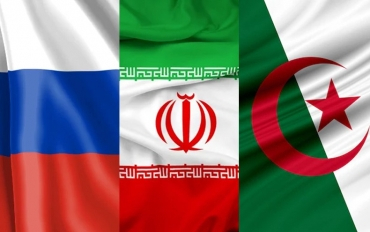Several EU reports and journalistic information reported by media outlets such as CNN and Le Monde indicate that the Algerian regime's intention is to facilitate the installation of Russian military bases in the Sahel with the help of Iran.
The Algerian regime is said to be receiving a significant supply of drones from Iran, which would go directly to the armed militia of the Polisario Front, a group that enjoys the Algerian authorities’ support, in its struggle against Morocco.
Iran, which operates in a similar way by supplying the terrorist group Hezbollah, intends to establish the most radical branch of its Islamism in the Sahel and Sahara, using the Algerian military system’s support.
Le Monde reported that the Algerian government had allowed the Wagner mercenary group (currently fighting in Ukraine under Putin's orders) to penetrate the Sahel to reach Mali. This presence led to France's departure from the African country and dealt a significant blow to the U.S.-led coalition to end terrorism in the region.
The Algerian government has become a firm ally of Russia, and it is estimated that it buys some $10 billion worth of arms from Russia annually, which would finance Putin's war against Ukraine. For the year 2023, Algeria plans to allocate $23 billion to arms purchases, more than half of which would be Russian-made.
In September 2022, the United States already expressed concern about Algeria's financing of Russia's war against Ukraine and called for sanctions against the North African country.
The military alliance has been reflected in recent times in the joint exercises, mainly maritime ones, conducted between the two countries in the Mediterranean.
Algiers has made its ports and ships available to Russia. It has also participated in other military exercises conducted by both countries in the past, both in the Caucasus and in Siberia, as well as in North Africa.
Jesús Sánchez Lambás, Vice President of the Coordinates Institute for Governance and Applied Economics, points out that the information available allows us to predict a double scenario of instability that would allow Russia to have a stranglehold on the European Union: Ukraine in the North and the Sahara in the South, aggravating the energy supply crisis.
While the humanitarian drama in the North focuses all US and EU political and media attention, the situation in the South is perceived as something distant and culturally alien to the West.
Western powers must anticipate the foreseeable catastrophe by strengthening their relations with the few reliable partners in the region, such as Morocco. It is getting late."
Latest Stories
-
SG Ghana champions ocean sustainability with ‘Move for Ocean’ clean-up drive
5 minutes -
TotalEnergies Marketing Ghana PLC holds its 49th AGM
11 minutes -
JoyNews’ Ivy Princilla Setordjie elected Vice Chairperson of GJA in Volta region
12 minutes -
WAFCON 2025: Let the spirit of independence inspire you to victory – Kofi Adams urges Black Queens
16 minutes -
NSMQ 2025: Archbishop Porter Girls’ SHS secures 73 points in opening contest of Western Regional qualifiers
18 minutes -
Photos from Otumfuo’s meeting with the Kusaug traditional council
24 minutes -
Ghana’s Energy Crossroads: How global oil shocks are reshaping an African economy
26 minutes -
The Crisis of Fatherhood: A global perspective on the erosion of male leadership and its societal implications
33 minutes -
What made President John Mahama’s GAVI speech in Brussels so powerful?
42 minutes -
Do leaders take undue credit for successful team achievements?
55 minutes -
Why Ghana’s Creative Industry needs bold investment, and how Fidelity Bank is stepping in
1 hour -
Nkwanta conflict will not prevent GES from conducting WAEC exams – GES PRO
1 hour -
The Multimedia Group’s Kofi Adu Domfeh elected Ashanti Regional GJA chairperson
1 hour -
GoldBod revokes all gold trading licences issued under former PMMC regime
1 hour -
GJA President hails 2025 elections as “smoothest process ever”
1 hour

